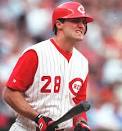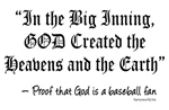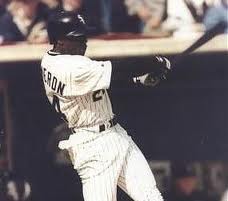
Konerko himself had just been acquired by the Reds from the Los Angeles Dodgers in a 1998 deadline deal for relief pitcher Jeff Shaw. In his brief time in Cincinnati, Konerko actually played more at 3B than he did at 1B. This turned out to be a very good trade that helped both teams. With Casey playing 1B, there was no need for Konerko. And the same can be said about Singleton in Chicago. Casey would hit .332, 25, 99 with 103 RS, 197 hits and 42 2Bs in 1999 for the Reds. Singleton, who was acquired from the Yankees less than a month after the Konerko/ Cameron swap, would hit .300, 17, 72 in 1999 for the White Sox with 20 SB and only 45 Ks in 530 plate appearances with 72 RS.
Konerko's 1999 was the beginning of a legendary career with the White Sox, where he became a fan favorite and icon. After hitting just .219 in his 217 ABs in 1998, he hit .294, 24, 81 in his first season with the White Sox. Cameron, who had hit just .210 in 141 games with the White Sox the year before, hit .256, 21, 66 with 34 2B and 38 SB. Cameron's emergence allowed for the Reds to use him as the centerpiece in a deal for Ken Griffey, Jr the following off season.
It is interesting to think about what could have happened had this evenly matched deal had never taken place. With Casey in the fold, it would be difficult to see where Konerko would have played in Cincinnati. Aaron Boone was the regular 3B and Boone was certainly a superior defensive player than Konerko. Sitting on the bench with the Reds may have made it difficult for Konerko's talent to be seen. It is likely Konerko would have gotten the chance to prosper somewhere else, but being dealt from Cincinnati gave him the chance to play that he would have not gotten with the Reds.
Perhaps without the acquisition of Cameron, the Reds never make the deal for Griffey. Even though Griffey wanted to be traded to the Reds, it would be difficult to see a match for a player who had won three straight AL home run crowns with an average of 53 HR per season. Though Griffey for Cameron was not an even swap, having Cameron laid the foundation for the deal to be made. If Cameron was the key piece to the deal being made, there is a possibility that the Reds could have been out of the mix when it came to a trade for Griffey. How would Griffey's career have gone if he was traded to the Yankees or Red Sox? Odds are he would have been fine wherever he was traded to. Cameron prospered in Seattle. Would he have gotten the same chance in Chicago?
It is safe to say that both Konerko and Cameron were grateful to be traded on this date for each other. Both of their respective teams either had or acquired a suitable replacement and the trade for both players allowed them to play everyday in their new cities. Cameron's 1999 Reds season was the springboard to his four solid seasons with the Mariners which led to the three year contract he signed with the Mets. Konerko's 1999 was the start of a run where he hit over 20 HRs every year except for 2003 through 2012. To me, this was the perfect example of the fair trade, in spite of Konerko's elite success with the White Sox.


 RSS Feed
RSS Feed
